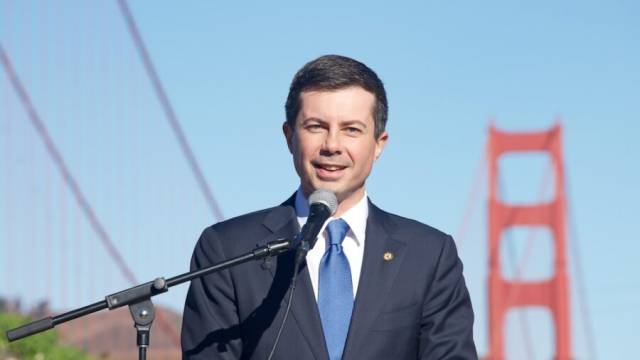In her forthcoming book, “107 Days,” former Vice President Kamala Harris disclosed that Minnesota Governor Tim Walz was not her initial choice for running mate, as reported by The Atlantic. She had preferred Pete Buttigieg, though it remains uncertain if her support can assist the former transportation secretary in reversing his current polling downturn.
Harris noted that Buttigieg, who is openly gay, “would have been an ideal partner – if I were a straight white man.” She reflected, “But we were already asking a lot of America: to accept a woman, a Black woman, a Black woman married to a Jewish man. Part of me wanted to say, Screw it, let’s just do it. But knowing what was at stake, it was too big of a risk. And I think Pete also knew that – to our mutual sadness.”
Ultimately, Harris chose Walz, who gained popularity among the online left for calling the Trump Campaign “weird.” Pennsylvania Governor Josh Shapiro was also considered a strong candidate prior to Walz’s selection.
In the section of “107 Days” that was published, Harris mentioned that Buttigieg was at the top of her list of eight vetted candidates. She described him as “a sincere public servant with the rare talent of being able to frame liberal arguments in a way that makes it possible for conservatives to hear them,” according to The Atlantic.
“I love Pete,” she reportedly expressed. “I love working with Pete. He and his husband, Chasten, are friends.” Harris’s book will be released on Tuesday, September 23, and is described on Simon & Schuster’s website as offering “surprising and revealing insights” into one of the most significant presidential campaigns in U.S. history.
Both Harris and Buttigieg sought the Democratic presidential nomination in 2020 but lost to Joe Biden. They have since been mentioned as potential candidates for 2028, with both having fluctuated in early polling results.
Currently, according to the Race to the WH Democratic primary polling average, Harris leads with 21.1 percent, closely followed by California Governor Gavin Newsom at 20.5 percent. Buttigieg, once a frontrunner, has slipped to third place with 11.8 percent. Although he topped a September 5 poll from Saint Anselm College, he faces significant electoral hurdles, particularly with Black voters, which could jeopardize his 2028 aspirations.
A June poll from Emerson College indicated that while Buttigieg had a slight overall lead, he received no support from Black respondents. This lack of backing among Black voters poses a serious challenge, especially as the Democratic primary begins in South Carolina, where Black voters comprise a crucial part of the party’s coalition.
 Telegram is where we really talk. Don't miss out!
Telegram is where we really talk. Don't miss out!









